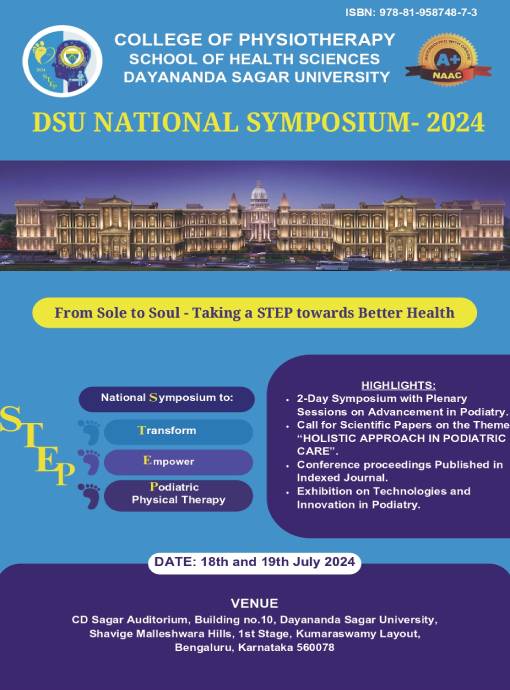Effect of 6-Week Dynamic Neuromuscular Stabilization Training on Pain, Disability and Quality of Life in Patients with Mechanical Low Back Pain: A Randomized Controlled Trial
DOI:
https://doi.org/10.18311/DSUPHY/9788195874873/2024/037Keywords:
Disability; Dynamic Neuromuscular Stabilization; Mechanical Low Back Pain; Neuroplasticity; Quality of Life; Spinal StabilityAbstract
Background: Mechanical low back pain is a common musculoskeletal ailment that is the most common disability in those under the age of 45 and is caused by excessive mechanical strain on collagen fiber without causing structural tissue damage. About 84% of people experience LBP at some stage in their lives, with higher rate of recurrence. Research demonstrates that dysfunction in spinal stabilizers leads to pain by compromising both movement control and joint stability. Dynamic neuromuscular stabilization, is an approach that aims to improve the muscular system’s dynamic stability, hence improving movement and reduce pain.
Objective: To determine the effect of 6-week Dynamic Neuromuscular Stabilization (DNS) training for management of pain, disability and quality of life of patients with mechanical low back pain.
Methodology: Total 80 patients who have fulfilled the inclusion and exclusion criteria were randomly divided into 2 groups. The intervention group (n=20) received DNS training and control group (n=20) received general core strengthening exercises. Treatment was given for 3 sessions/week for 6 weeks for both groups. VAS, pressure algometer, ODI and MMT are the outcome measures used pre and post-tests.
Result: There was significant difference seen in both the groups individually (p<0.05) but on comparison, experimental group was more effective than control group in improving the ODI score (P=0.019).
Conclusion: This study concluded; DNS as an effective treatment for patients with MLBP.
 Moumita Dutta Roy
Moumita Dutta Roy
